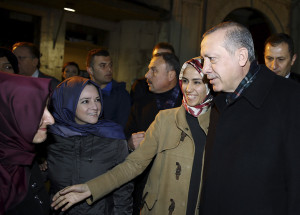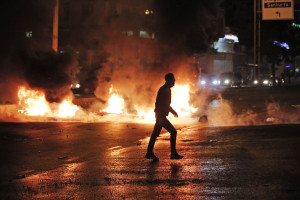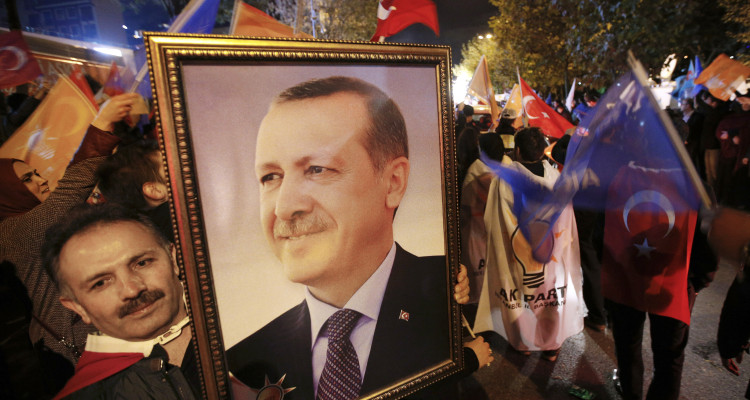In a turnaround victory, Turkish President Recep Tayyip Erdogan’s Freedom and Justice Party (AKP) won 49% of the vote in the election, handing it a majority of seats in the country’s parliament. Relations between Turkey and Israel have sharply deteriorated under AKP’s Islamist rule.

Erdogan speak to supporters after morning prayers at Eyup Sultan Mosque in Istanbul. (Presidential Press Service/Pool via AP)
By: Lauren Calin, World Israel News
The elections were a repeat of the June elections, when the AKP led in the votes, but did not receive enough seats to rule without forming a coalition. Prime Minister Ahmet Davutoglu was unable to form a coalition with any of the opposition parties, forcing a new vote. This may have been part of a deliberate gamble by the AKP in order to restore the party’s majority in parliament. Erdogan had been hoping to win a supermajority in order to push through sweeping constitutional changes that would increase his authority as president.
“The election result has shown that the people have opted for stability and trust that had been endangered in the June 7 vote,” Erdogan said after the vote.
In June, the Kurdish HDP cleared for the first time the 10 percent threshold needed for representation in parliament, taking seats mostly at the ruling party’s expense. But tensions with Turkey’s large Kurdish minority have escalated due to violence against both Kurdish militants and civilians. Preliminary results showed HDP hovering just above 10 percent, losing about 3 percentage points. HDP officials have accused the Turkish government of preventing their party from carrying out a campaign.
HDP’s co-chairman Selahattin Demirtas said the party was forced to cancel election rallies and television stations gave party representatives little air-time amid government attacks branding the party as the political wing of the Kurdistan Workers’ Party, or PKK, which is considered a terrorist organization by Turkey and its allies.

Kurdish protests following the vote in Turkey. (AP/Lefteris Pitarakis)
“I regret to say that there wasn’t a fair or equal election… We were not able to lead an election campaign, we tried to protect our people against attacks,” he said.
Turkish-Israeli relations, once one of the closest alliances in the region, have deteriorated sharply under the Islamist AKP. Turkey ended diplomatic relations with Israel from 2011 to 2013 due to the Mavi Marmara incident, in which Turkish activists attempting to break the siege on Gaza ambushed the IDF soldiers sent to intercept them. Erdogan has also accused Israel of “state terrorism” for defending itself against Hamas rocket attacks, and even invited Hamas leader Khaled Mashal for an official visit.





